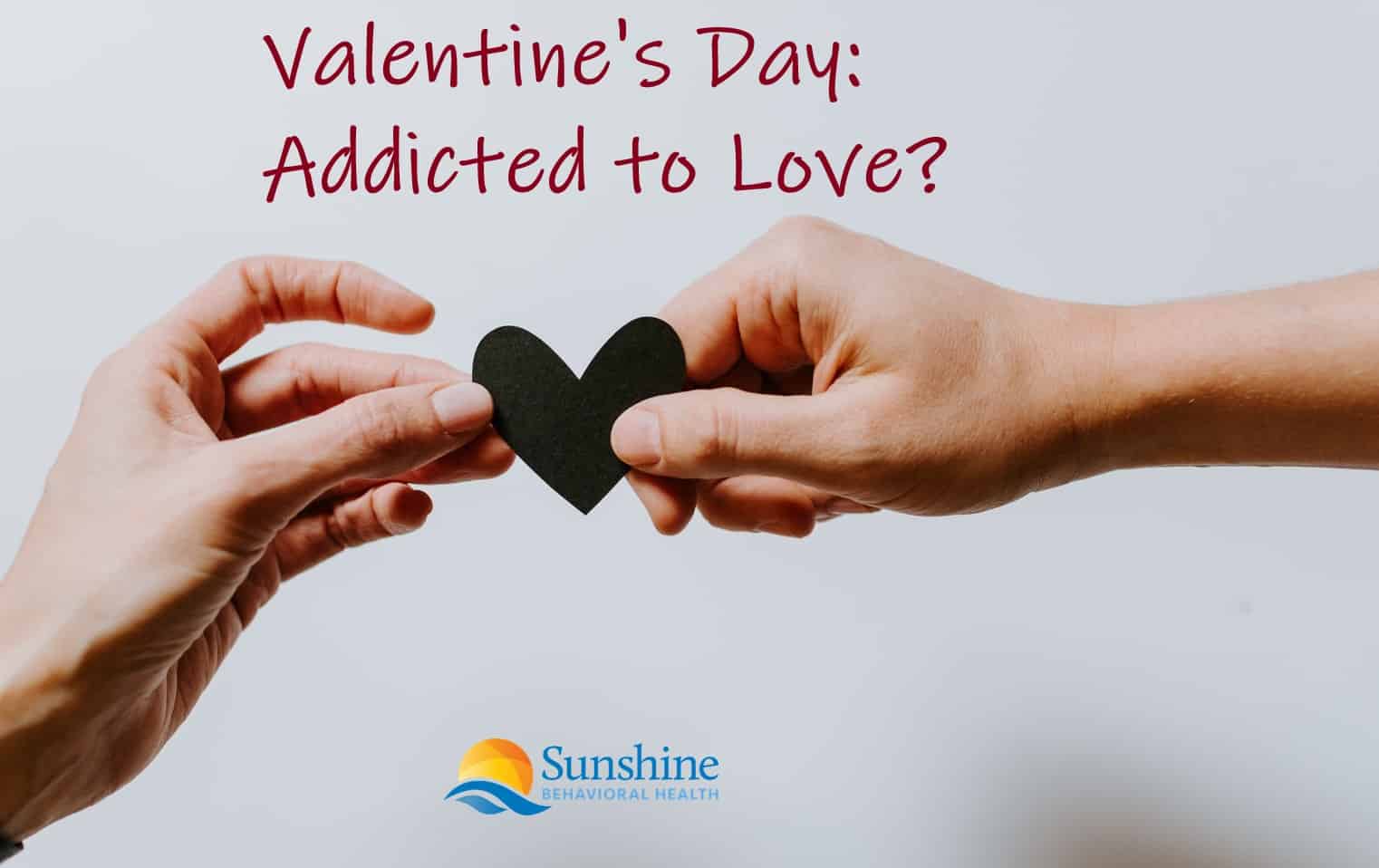
Valentine’s Day: Addicted to Love?
During February and on Valentine’s Day, people’s thoughts often turn to love. But some people’s thoughts much more frequently turn to love.
Some people fall in and out of love and enter and exit relationships frequently. They’re sometimes said to be in love with love.
Can some people be addicted to love?
Why is love like a drug?
Using another popular phrase, people who seem compatible with each other are said to have good chemistry. But there’s actual science involved in matters of love and sex.
The early stages of falling in love and drug and alcohol addictions activate some of the same regions of the brain. Some researchers even compare early romantic love to a behavioral addiction
Those feelings can be exhilarating if you’re healthy. But if you’re in addiction treatment or are early in recovery, they can be complex and even harmful.
How can love impact sobriety?
It’s complicated is more than just a status on social media platforms. It’s also a good way to describe the interactions among recovery and relationships.
Since new relationships activate the brain, people who were struggling with issues such as anxiety, depression, and/or addiction might not feel the effects of those previous conditions (or feel those kinds of effects less). Love and lust might mask everything else they’re experiencing.
If people feel better, they might think they’re cured entirely from addictions or other conditions. They might quit treatment programs, support groups, or other forms of assistance because they think they don’t need them anymore.
But as intoxicating as the rush of newfound love might be, the feelings are temporary. When the feelings fade, people might be faced with addiction, depression, and anxiety again. If they haven’t sought treatment for these conditions or have stopped such treatment, they might look for ways to recapture the intoxicating feelings they once experienced.
Such tactics might include using drugs or alcohol. They might also include finding a new love after the novelty of a current love has faded.
People might repeat these patterns and destroy so much. If they quickly enter and exit several relationships, they could hurt others and themselves. If they use drugs and alcohol to cope, they could endanger their physical, mental, and emotional health – not to mention any future relationships.
How can people protect themselves?
There’s no way to wholly protect ourselves from different kinds of pain, but we can do things to minimize or prevent certain kinds of damage.
If we’ve just entered or exited addiction treatment, we might not want to enter any new romances right away. If we’re in treatment or early recovery, we’re dealing with many physical, mental, and emotional changes.
Processing all these can be difficult on their own, and even more challenging if we’re trying to juggle a new relationship. We might want to invest our time and energy on our newfound sobriety, not a union with someone new.
In fact, many addiction experts and support group organizations suggest that people don’t start new romantic relationships until they’ve been sober for at least a year.
Instead, we can focus on our sobriety by joining support groups, visiting therapists, or using other forms of assistance. We can concentrate on doing things for ourselves to sustain our recoveries and our health without having to worry about others. We can invest in – and love – ourselves.
Sources
ncbi.nlm.nih.gov – Romantic Love vs. Drug Addiction May Inspire a New Treatment for Addiction
dw.com – Scared of Getting Attached – Why We Run Away from Relationships
sunshinebehavioralhealth.com – Relationships and Addiction: The Challenges and Dangers
health.usnews.com – Why Newly Sober Alcoholics and Addicts Shouldn’t Date for a Year
A Message From Our CEO
Medical disclaimer:
Sunshine Behavioral Health strives to help people who are facing substance abuse, addiction, mental health disorders, or a combination of these conditions. It does this by providing compassionate care and evidence-based content that addresses health, treatment, and recovery.
Licensed medical professionals review material we publish on our site. The material is not a substitute for qualified medical diagnoses, treatment, or advice. It should not be used to replace the suggestions of your personal physician or other health care professionals.





